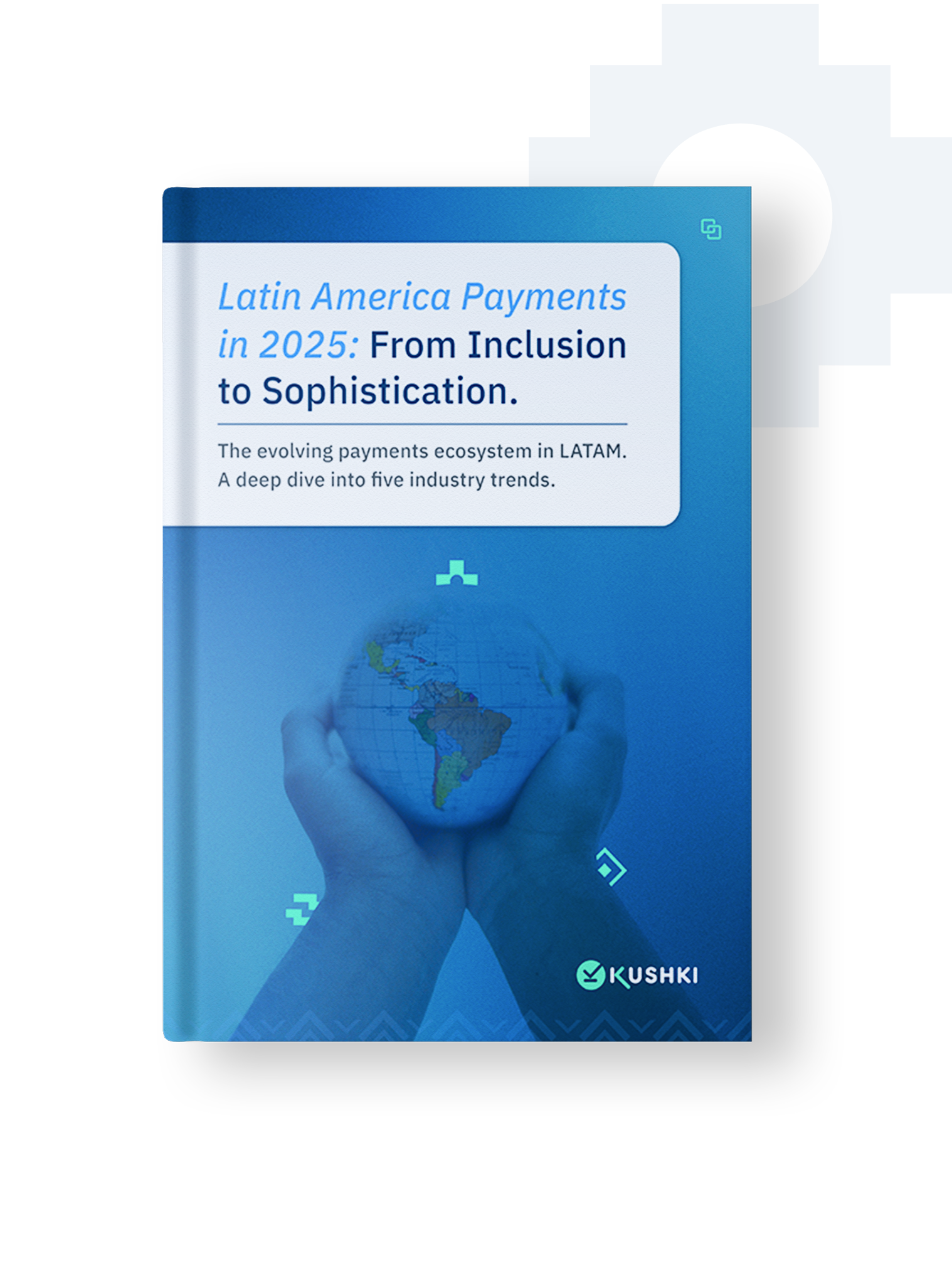Payments in Latin America in 2025: From inclusion to sophistication: the evolving payment ecosystem in LATAM
Five trends in the financial and technology sector that will not only define 2025, but the next steps in this increasingly fast-moving industry.

Complete the form to download the Paper
What will you find in this study?
Latin America continues to transform its payments ecosystem, moving from a cash-based economy to one where digital, real-time and omnichannel payments are booming.

- Technology drives the future of omnichannel.
- A2A payments and the changing competitive landscape.
- A2A payments and the changing competitive landscape.
- Value creation, the new challenge for digital wallets.
- The two faces of AI against fraud.
Download all of our papers and Kushki insights
Learn more about the industries that are changing Latin America in our new downloadable studies.
